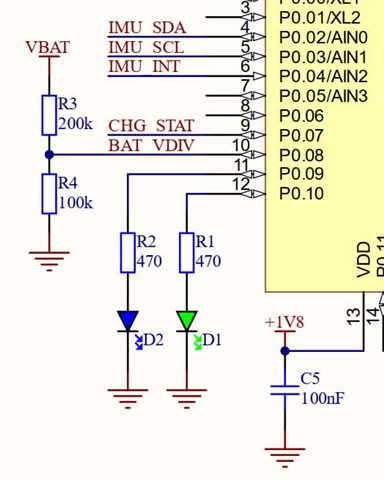Hello.
I'm having issues with a custom design board using NRF52832_QFAA SOC.
This is the snippet of the schematic design that my group created:

This board uses internal DCDC, 2 external GPIO LEDs, an instance of I2C and the 32MHz oscillator.
Some other custom board files:
0525.omniring_rev_1-pinctrl.dtsi
config BOARD_OMNIRING_REV_1 select SOC_NRF52832_QFAA
# SPDX-License-Identifier: Apache-2.0 # Enable MPU CONFIG_ARM_MPU=y CONFIG_HW_STACK_PROTECTION=y # CONFIG_CLOCK_CONTROL_NRF_K32SRC_XTAL=y # CONFIG_CLOCK_CONTROL_NRF_K32SRC_50PPM=y CONFIG_BOARD_ENABLE_DCDC=y # Enable RTT CONFIG_USE_SEGGER_RTT=y # Enable GPIO CONFIG_GPIO=y # Enable I2C driver CONFIG_I2C=y # choose RTT console # Disable UART console as RTT is chosen CONFIG_CONSOLE=y CONFIG_SERIAL=y CONFIG_UART_CONSOLE=n CONFIG_RTT_CONSOLE=y # Config logger CONFIG_LOG=y CONFIG_LOG_BACKEND_RTT=y CONFIG_LOG_BACKEND_UART=n
Right now we are trying to flash a few test programs into the custom board, 1 to test the 2 LEDs and 1 more to test Bluetooth LE Advertising. The 2 applications built successfully using the custom board, but when we flashed the .hex files into the custom board, none of the functionalities worked. We used both "west flash" from the VSCode extension and JLink's J-Flash utility.
At this point we are not sure if our hardware design or software design is flawed or missing any details. And we have no clue how to troubleshoot them.
Any help is really appreciated. Feel free to ask for relevant extra details about our design.
Regards,
Jackie


